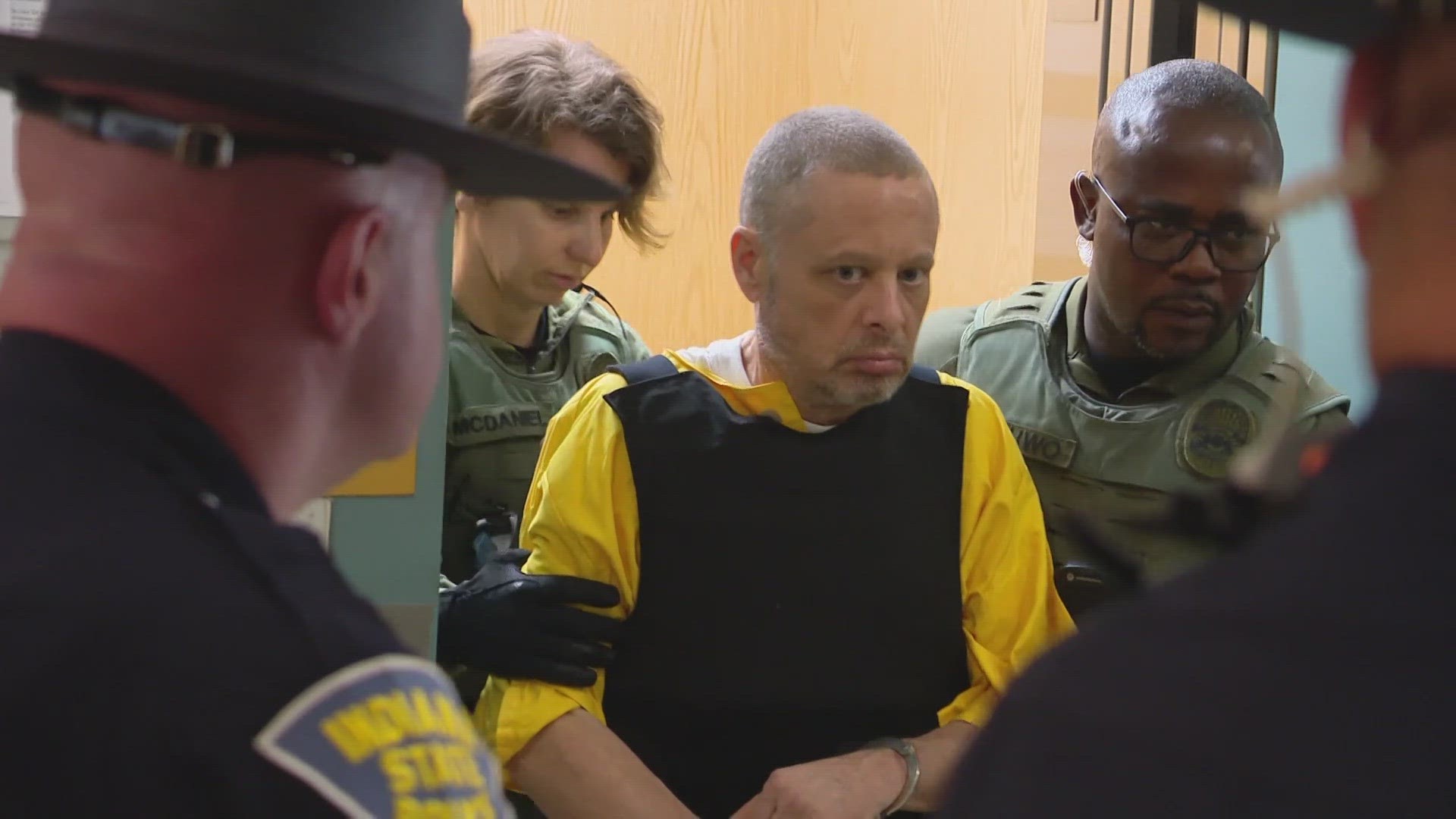DELPHI, Ind. — The prosecutor in the Delphi murders case is arguing against a defense team motion to suppress Richard Allen's alleged confessions to the murders of Abby Williams and Libby German made while he was in prison awaiting trial.
The state is expected to use Allen’s jailhouse statements against him, but the defense team says the comments Allen allegedly said don’t even match up with evidence from the crime scene and, therefore, show the confessions cannot be true.
Attorneys for Allen asked special judge Frances Gull to suppress any statements Allen made while he’s been in prison awaiting trial, claiming that incriminating comments were not made voluntarily and came while he was mentally ill.
For those reasons, Allen’s public defenders say allowing a jury to hear the alleged confessions would violate the defendant’s constitutional rights.
Allen has been housed at maximum security state prisons for nearly 18 months since his arrest in October 2022. He is charged with killing the two Delphi teenagers, whose bodies were found near the Monon High Bridge in Delphi in February 2017.
On Wednesday, April 24, Gull denied WTHR's request to have a camera in the courtroom for the upcoming trial.


In a “motion to suppress statements” filed April 11 with Carroll County Circuit Court, defense attorney Brad Rozzi said “Allen has been accused of making incriminating statements to both inmates and guards” while he was at the Wabash Correctional Facility between March and June of last year.
Rozzi claims prison officials posted inmates at Allen’s cell door and required those inmates to keep logs of all of Allen’s actions, statements and behaviors. And the attorney says some of those inmates actively asked Allen questions.
The defense teams says that essentially amounts to a “sustained form of interrogation; one that lasted more than five months before he was finally broken.”
The prosecution argues in its response that there were Indiana Department of Corrections staff and inmates, referred to as suicide companions, who monitored Allen's behaviors and statements. The prosecution claims they were assigned to Allen at a "frequency determined necessary by mental health personnel." Those monitoring him kept "door sheets," which log Allen's statements and behaviors. They said inmates were later removed and replaced by staff as suicide companions as Allen had legal documents from the case provided to him and so it was determined staff should be assigned because of the gag order in the case.
In a separate memorandum supporting the defendant’s request, Rozzi argues allowing a jury to hear Allen’s statements would be a violation of his constitutional rights because Allen did not have an attorney present when the comments were made.
The prosecution responded to that claim, arguing Allen's comments were voluntarily given.
Rozzi also says Allen suffered from a mental health disorder while in prison, made worse by being placed in isolation.
In his court filings, he argues Allen “slipped into a state of psychosis plagued with grossly disorganized, delusional, paranoid and highly dysfunctional behavior.” Rozzi says that behavior, detailed in the defense team’s memorandum for the judge, includes “periods of not sleeping for days, paranoia, stripping off his clothes, drinking toilet water, covering himself with and eating his own feces, and many other socially unacceptable behaviors.”
The defense team claims Allen’s statements and alleged confessions were not given voluntarily, but instead as a result of Allen being overcome by his harsh environment in a prison isolation cell while on suicide watch.
And they say any confessions were therefore coerced and should not be admissible at trial.
The prosecution argues there was no interrogation of Allen while in prison as officers were not making statements or taking actions they knew would likely elicit an incriminating response.
The state agreed it should have to prove Allen's statements were not part of an interrogation or in violation of the constitution, but that the defense calling for all of his statements while in custody to be tossed does not hold up. The prosecution instead asked for the defense to argue which of Allen's comments should be suppressed to allow the prosecution to argue the circumstances around it were legal.
Allen's trial is set to begin in mid-May.

